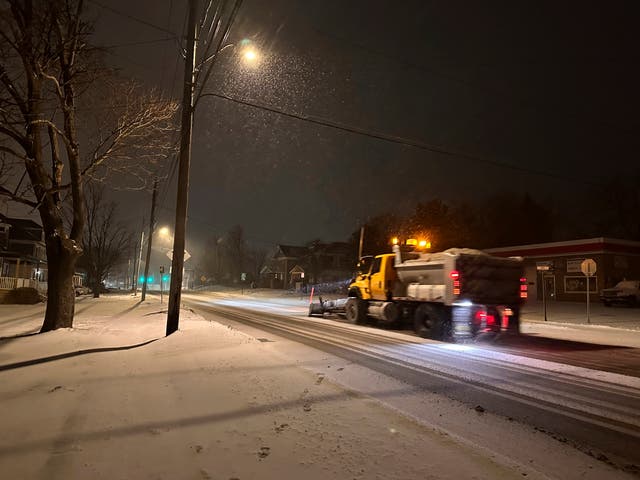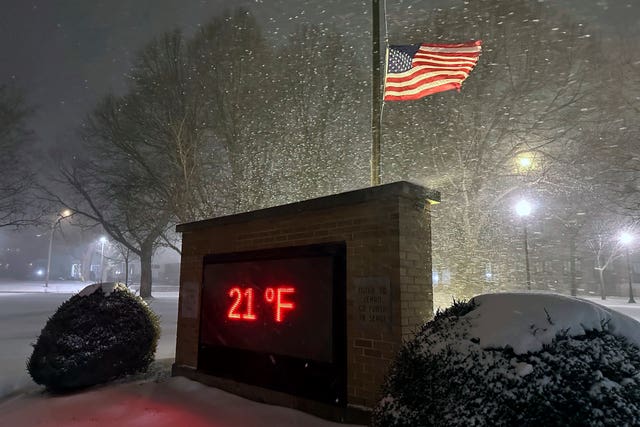Major winter storm plunges large parts of US into severe cold
The National Weather Service has issued winter storm warnings from Kansas and Missouri to New Jersey.

A major, disruptive winter storm is sweeping across the central US, bringing with it a dreaded combination of snow, ice and plunging temperatures.
The National Weather Service (NWS) has issued winter storm warnings from Kansas and Missouri – where blizzard conditions are expected – to New Jersey.
In the two states where blizzard warnings are in effect, travel “could be very difficult to impossible”, with snow whipped around by high winds reducing visibility, the NWS said. Gusty winds could bring down tree branches.
“Do not travel unless necessary,” the NWS said.
The storm will reach the Mid-Atlantic states on Sunday into Monday, with a hard freeze even expected as far south as Florida.

Parts of upstate New York saw 3ft or more of snow from a lake effect event expected to last until late Sunday afternoon.
In Kansas, a major pile-up occurred west of Salina, with video footage form the area showing how the road resembled an ice rink.
Several businesses closed across the Kansas City area, and the school district in suburban Independence, Missouri, said it might need to cancel classes for one or more days.
“Get where you’re going now and stay put. If you must travel, consider packing a bag and staying where you’re headed,” the Missouri Department of Transportation said in a message on X.

In Chicago on Saturday, temperatures around minus 7-10C, and around minus 18C in Minneapolis, while dropping to minus 25C in International Falls, Minnesota, on the Canadian border.
In Baltimore, an extreme weather alert has been issued instructing agencies to provide shelter and assistance for those in need. City officials said wind chills are expected to dip to minus 10C overnight into Sunday and remain low until Tuesday.
The polar vortex of ultra-cold air usually stays penned up around the North Pole, spinning like a top. But sometimes it escapes or stretches down to the US, Europe or Asia – and that is when large numbers of people experience intense doses of cold.
Studies show a fast-warming Arctic gets some of the blame for the increase in polar vortex stretching or wandering.





